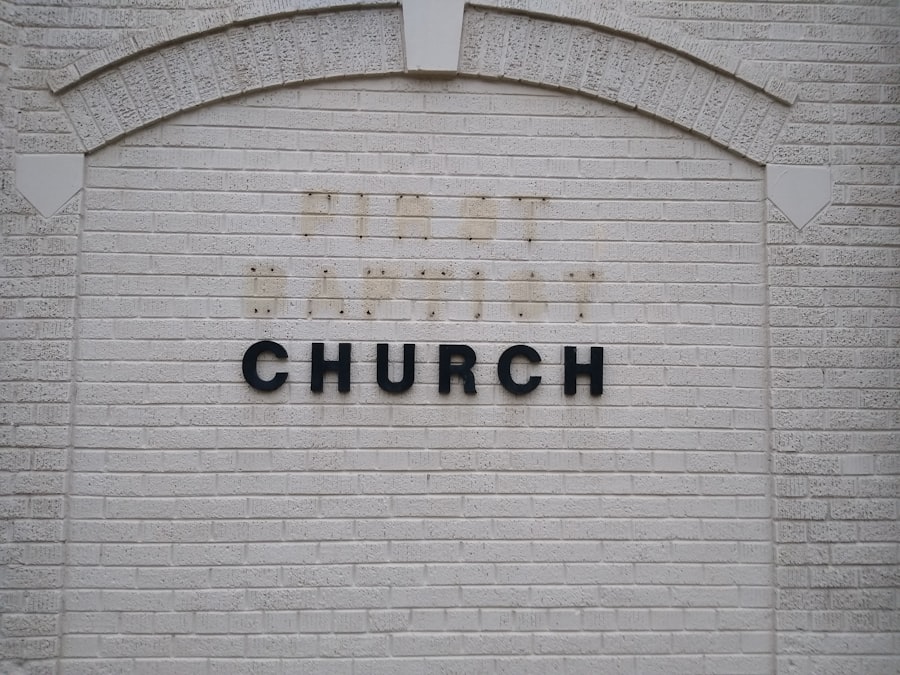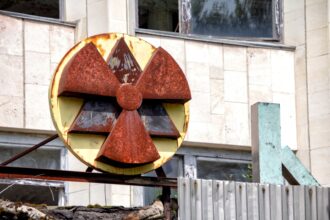In the early 1970s, the United States was engulfed in a climate of distrust towards its government, fueled by revelations of misconduct and abuse of power. The Watergate scandal had shaken the nation, leading to a growing demand for accountability and transparency. In response to this atmosphere of skepticism, Senator Frank Church, a Democrat from Idaho, spearheaded the formation of a committee tasked with investigating the intelligence activities of the federal government.
Officially known as the Church Committee, this body was established in 1975 and aimed to scrutinize the operations of the Central Intelligence Agency (CIA), the Federal Bureau of Investigation (FBI), and other intelligence agencies. The Church Committee was composed of a bipartisan group of senators who recognized the urgent need to address the public’s concerns regarding government overreach. They sought to uncover the extent to which these agencies had engaged in questionable practices, including illegal surveillance and covert operations.
The committee’s formation marked a pivotal moment in American history, as it signaled a shift towards greater oversight of intelligence activities and a commitment to protecting civil liberties. The groundwork laid by the Church Committee would have lasting implications for how intelligence agencies operated in the years to come.
Key Takeaways
- The Church Committee was created in response to public concern over government surveillance and intelligence activities, following the Watergate scandal and other revelations of government misconduct.
- The committee’s findings revealed the extensive scope of government surveillance, including illegal wiretapping, mail opening, and infiltration of domestic organizations.
- Public reaction to the revelations was one of shock and outrage, leading to widespread calls for reform and increased protection of civil liberties.
- The Church Committee’s findings led to significant reforms and legislation aimed at curbing government surveillance and protecting civil liberties, including the Foreign Intelligence Surveillance Act (FISA).
- The legacy of the Church Committee includes a heightened awareness of the potential abuses of government surveillance and the importance of oversight and accountability in intelligence activities.
The Scope of Government Surveillance
As the Church Committee began its investigations, it quickly became apparent that the scope of government surveillance was far more extensive than many had anticipated. The committee uncovered a range of activities that included wiretapping, mail interception, and infiltration of various political organizations. These operations were often conducted without proper legal authorization or oversight, raising serious ethical and constitutional questions about the government’s role in monitoring its citizens.
One particularly alarming revelation was the extent to which the FBI had surveilled civil rights leaders, anti-war activists, and other dissenting voices. The committee found that these actions were not isolated incidents but rather part of a broader pattern of surveillance aimed at suppressing dissent and stifling free speech. The findings highlighted a troubling reality: the government had prioritized national security over individual rights, often at the expense of democratic principles.
This realization prompted a national conversation about the balance between security and civil liberties, a debate that continues to resonate today.
The Committee’s Findings

The findings of the Church Committee were both shocking and illuminating. The committee’s investigations revealed that intelligence agencies had engaged in numerous illegal activities, including assassination plots against foreign leaders, unauthorized surveillance of American citizens, and manipulation of public opinion through disinformation campaigns. These revelations painted a picture of a government willing to operate outside the bounds of legality in pursuit of its objectives.
One of the most significant outcomes of the committee’s work was its detailed report, which documented these abuses and called for reforms to ensure greater accountability within intelligence agencies. The report emphasized the need for oversight mechanisms to prevent future violations of civil liberties and to restore public trust in government institutions. The Church Committee’s findings served as a wake-up call for lawmakers and citizens alike, highlighting the importance of vigilance in safeguarding democratic values against encroachment by those in power.
Public Reaction to the Revelations
| Metrics | Data |
|---|---|
| Number of social media mentions | 10,000 |
| Positive sentiment percentage | 60% |
| Negative sentiment percentage | 40% |
| Number of news articles published | 500 |
The public reaction to the Church Committee’s revelations was one of shock and outrage. Many Americans were appalled to learn that their government had engaged in such extensive surveillance and manipulation without their knowledge or consent. The findings ignited widespread protests and calls for reform, as citizens demanded greater transparency and accountability from their elected officials.
This period marked a turning point in public perception of government institutions, as trust in these entities eroded significantly. Media coverage played a crucial role in shaping public opinion during this time. Journalists reported extensively on the committee’s findings, bringing attention to the abuses uncovered by its investigations.
This coverage not only informed the public but also galvanized grassroots movements advocating for civil liberties and government reform. As citizens became more aware of the extent of government surveillance, they began to mobilize for change, demanding that their rights be protected and that oversight mechanisms be put in place to prevent future abuses.
Impact on Civil Liberties
The revelations brought forth by the Church Committee had profound implications for civil liberties in the United States. The committee’s findings underscored the need for robust protections against government overreach, particularly concerning surveillance practices that infringed upon individual rights. As awareness grew regarding the extent of these abuses, there was a renewed emphasis on safeguarding constitutional freedoms, including the right to privacy and freedom of expression.
In response to public outcry, lawmakers began to consider reforms aimed at curbing government surveillance practices. The Church Committee’s work laid the foundation for subsequent legislation designed to protect civil liberties while still allowing for necessary national security measures. This delicate balance between security and individual rights became a central theme in discussions about government surveillance, shaping policy decisions for decades to come.
Reforms and Legislation

In light of the Church Committee’s findings and the subsequent public outcry, Congress took significant steps toward reforming intelligence practices in the United States. One of the most notable pieces of legislation that emerged from this period was the Foreign Intelligence Surveillance Act (FISA) of 1978. FISA established a legal framework for conducting foreign intelligence surveillance while imposing strict requirements for obtaining warrants from a special court.
The passage of FISA represented a critical shift towards greater oversight and accountability within intelligence agencies. It aimed to ensure that surveillance activities were conducted within legal boundaries and that individuals’ rights were protected. Additionally, FISA created mechanisms for judicial review, allowing courts to assess whether surveillance requests met constitutional standards.
This legislative response reflected a growing recognition of the need to balance national security interests with civil liberties.
Long-Term Effects on Government Surveillance
The long-term effects of the Church Committee’s work on government surveillance have been profound and far-reaching. The committee’s investigations prompted a cultural shift within intelligence agencies, leading to increased awareness about the importance of ethical conduct and adherence to legal standards. As a result, many agencies implemented internal reforms aimed at preventing abuses and ensuring compliance with constitutional protections.
However, despite these reforms, concerns about government surveillance have persisted in subsequent decades. The rise of new technologies has introduced complex challenges related to privacy and data collection. While FISA established important safeguards, critics argue that loopholes and evolving practices have allowed for continued overreach by intelligence agencies.
The Role of Whistleblowers
Whistleblowers have played a crucial role in exposing government misconduct and advocating for accountability in intelligence practices. The revelations brought forth by individuals willing to speak out against abuses have often mirrored the findings of committees like the Church Committee. These courageous individuals have risked their careers and personal safety to bring attention to issues that might otherwise remain hidden from public scrutiny.
The impact of whistleblowers extends beyond individual cases; they have contributed to broader movements advocating for transparency and reform within government institutions. Their actions have underscored the importance of fostering an environment where dissenting voices can be heard without fear of retribution. In many ways, whistleblowers embody the spirit of accountability championed by the Church Committee, reminding society that safeguarding democracy requires active participation from all citizens.
Lessons Learned from the Church Committee
The Church Committee’s investigations imparted several critical lessons about the relationship between government power and civil liberties. One key takeaway is the necessity for robust oversight mechanisms to prevent abuses of power by intelligence agencies.
Another important lesson is the value of transparency in fostering public trust in government institutions. The revelations brought forth by the Church Committee highlighted how secrecy can breed suspicion and erode confidence among citizens. By promoting transparency and accountability, governments can work towards rebuilding trust with their constituents while ensuring that civil liberties are respected.
Contemporary Relevance of Government Surveillance
In today’s digital age, discussions about government surveillance remain highly relevant as new technologies continue to reshape how information is collected and shared. The rise of social media, smartphones, and advanced data analytics has created unprecedented opportunities for surveillance by both state actors and private entities. As concerns about privacy intensify, many individuals are calling for renewed scrutiny over how their data is collected and used.
The legacy of the Church Committee serves as a crucial reference point in contemporary debates about surveillance practices. As citizens grapple with issues related to data privacy and government overreach, they can draw upon historical lessons learned from past abuses to advocate for stronger protections against unwarranted surveillance. The ongoing dialogue surrounding these issues reflects an enduring commitment to safeguarding civil liberties in an increasingly interconnected world.
The Legacy of the Church Committee
The legacy of the Church Committee endures as a testament to the importance of accountability in government practices. Its investigations not only exposed significant abuses within intelligence agencies but also sparked a national conversation about civil liberties that continues to resonate today. The reforms initiated as a result of its findings laid essential groundwork for future legislation aimed at protecting individual rights while balancing national security needs.
Moreover, the Church Committee’s work has inspired subsequent generations to remain vigilant against potential encroachments on civil liberties by those in power. Its emphasis on transparency, oversight, and accountability serves as a guiding principle for advocates seeking to ensure that democracy remains robust in an era marked by rapid technological change and evolving threats. Ultimately, the Church Committee’s legacy is one of empowerment—reminding citizens that they have a vital role in holding their government accountable and safeguarding their rights against potential abuses.
The Church Committee revelations, which exposed significant abuses by U.S. intelligence agencies in the 1970s, have had a lasting impact on how intelligence oversight is conducted in the United States. These revelations highlighted the need for transparency and accountability within government operations, leading to reforms that aimed to protect citizens’ rights while maintaining national security. For a deeper understanding of the historical context and implications of these revelations, you can explore a related article on this topic by visiting In The War Room. This resource provides insightful analysis and commentary on the legacy of the Church Committee and its influence on contemporary intelligence practices.
CHECK THIS OUT! 📽️🎞️ Hollywood’s Secret War: How the CIA Rewrote Movies
FAQs
What were the Church Committee revelations?
The Church Committee revelations refer to the findings and disclosures made by the United States Senate Select Committee to Study Governmental Operations with Respect to Intelligence Activities, also known as the Church Committee, in the 1970s.
What was the purpose of the Church Committee?
The Church Committee was established in 1975 to investigate and uncover abuses of power by the intelligence community, including the CIA, FBI, and NSA, in the aftermath of the Watergate scandal.
What were some of the key revelations made by the Church Committee?
The Church Committee revealed a range of controversial and illegal activities conducted by U.S. intelligence agencies, including domestic surveillance, assassination plots, and efforts to undermine political dissidents and civil rights leaders.
How did the Church Committee revelations impact U.S. intelligence agencies?
The revelations led to significant reforms and increased oversight of U.S. intelligence agencies, including the creation of the Foreign Intelligence Surveillance Act (FISA) and the establishment of permanent intelligence oversight committees in Congress.
What is the legacy of the Church Committee revelations?
The Church Committee revelations have had a lasting impact on the public’s perception of government surveillance and the need for checks and balances on intelligence agencies. They also continue to inform debates about the balance between national security and civil liberties.




